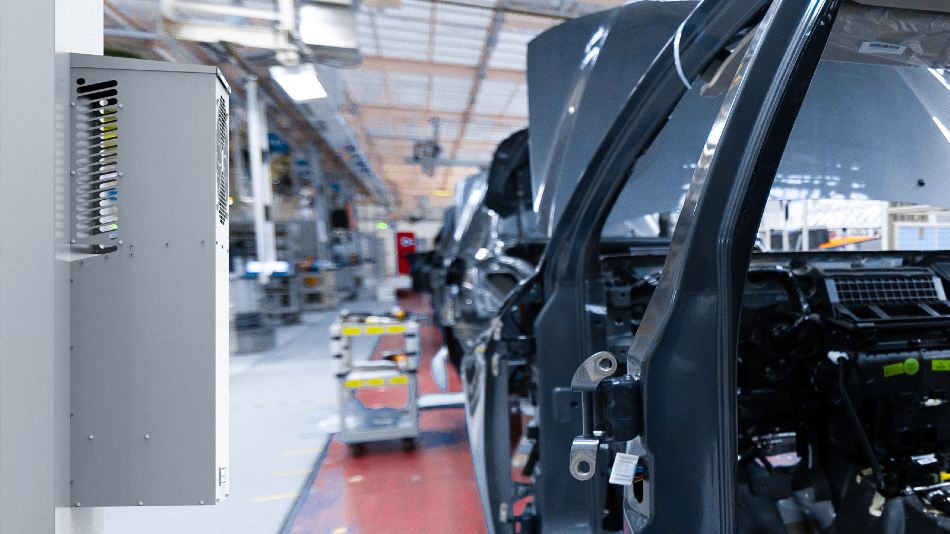A typical air-to-air heat exchanger creates a path that allows heat to move from a higher to lower temperature more quickly than cooling can occur within an enclosure wall. In contrast, Pfannenberg’s Kinetic System™ (PKS) Series Air to Air Heat Exchangers create a closed passive loop system that 1) unlike a filter fan, does not allow external and internal air to mix and 2) unlike cooling units, does not have an active compressor that uses energy to facilitate heat flow from high to low temperatures.

PKS stands out among other cooling methods, as it uses newly discovered refrigerant-based air-to-air technology that uses the thermodynamic properties of the refrigerant to cause the refrigerant to move through the coils without a compressor. Because it does not use a compressor, or any other active component, PKS needs less energy to run. This, as well as the fact that it does not expel excess heat energy from a compressor, establishes PKS as a considerably more environmentally-friendly option than a conventional cooling unit.
PKS’s closed loop system also presents unique advantages to open loop systems, as it “kills two birds with one stone.” Namely, the closed loop prevents particulates that drift through the ambient air from moving into the enclosure. This keeps critical components safe from hazardous airborne particulates. For example, it can prevent corrosives that are used to clean bottles and stainless-steel surfaces from damaging the electrical components inside the enclosure.
The structure of PKS involves two main features, its two fans and its heat exchanger. The fans move air across the heat exchanger; the heat exchanger, in turn, allows heat to be absorbed from inside the cabinet and released into the ambient air. Moreover, while most competitors need many different sized cutouts and shell sizes for their coolers, PKS has one shell and one cutout for four different cooling capacities. This allows PKS to shave off 70 lbs., so that it puts less stress on enclosure walls than other, heavier units.
These innovative features qualify Pfannenberg’s Kinetic System™ as the ideal option for all industries that own a climate-controlled factory, need to keep out hazardous air-borne particulates, and hope to cool their components at a lower energy-cost.
“From the automotive industry to all other ventures that require careful cooling, PKS increases safety while decreasing cost and environmental impact,” says Chris Marlow, Solutions Engineer for Pfannenberg USA.